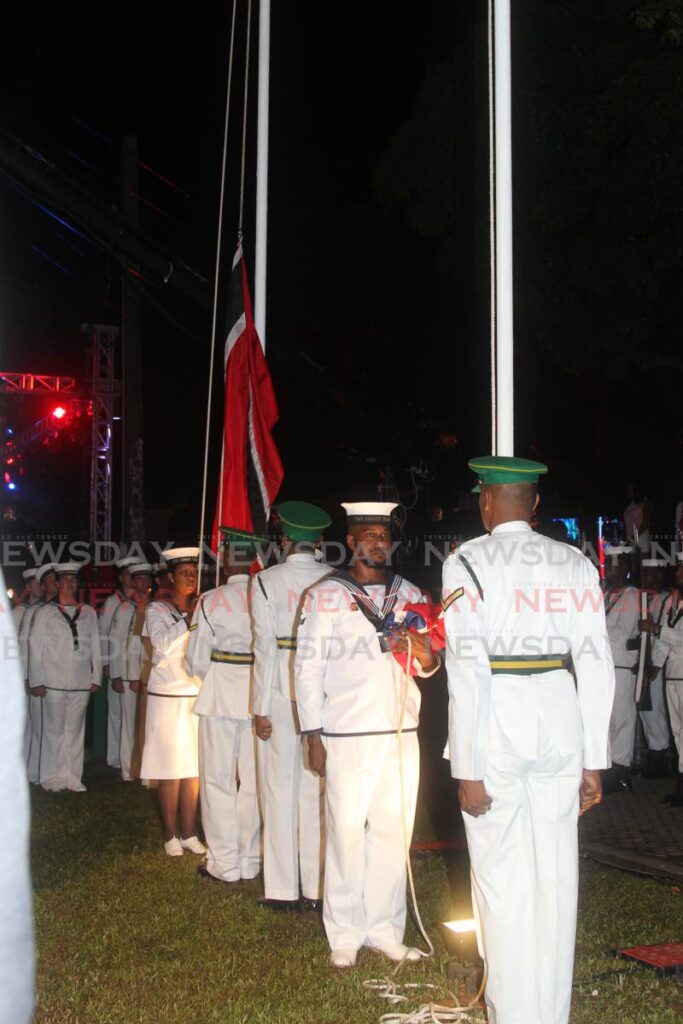TTDF accepts 4%...but soldiers rumoured to be unhappy

THE Defence Force (TTDF) has accepted government's four per cent wage increase offer amid rumours of anger and discontent among the ranks over this decision made by the top brass.
The acceptance of the offer came on Friday, according to a release from Chief Personnel Officer (CPO) Dr Darryl Dindial.
This Defence Force is the second branch within the public service to sign off on the offer after the Amalgamated Workers Union, which represents daily-paid workers in the Port of Spain Corporation, did so several weeks ago.
However, sources within the force say while the CPO lauded the Chief of Defence Staff (CDS) and others for “balancing expectations,” soldiers on the ground are angry over the agreement. Some even took to social media to vent their dissatisfaction with the CDS.
The CPO's release confirmed that the Defence Force signed off on the offer which covers the collective bargaining periods, 2014-2016, and 2017-2019.
Along with the pay rise, the TTDF also got new allowances for instructors conducting basic recruit training; radar operating and technicians; dog handling; increments for permanent reservists; allowances for front-line operators engaged in inter-agency task force operations and maritime duties; and incentive allowances for pilots and aviation engineers.
“Additionally, subject to the approval of the Cabinet, the Force received consideration for a special missions allowance for regional operations and compensation for a part-time Strategic Think Tank.”
“The latter is intended to support the development and modernisation of the TTDF to improve on the delivery of its mandate, treat with new and emerging threats, the development of doctrine, its military justice system, wellness system and revised recruitment, performance management and training standards,” the release said.
UNPRECEDENTED
Newsday was told this was the first time since the 1970 Black Power Revolution that soldiers had signed off on wage negotiations before the police.
Police Social Welfare Association (PSWA) president Inspector Gideon Dickson said it is common practise for police officers to negotiate wages, then soldiers who do not have a bargaining body and cannot take industrial action, depend on the results of those negotiations to set a precedent, where they would then be paid at a higher rate.
“I am not aware that something like this has ever happened before,” Dickson said.
“I know there is a principle by which they would get the same wages negotiated by the police and a third.”
Dickson said the police are still engaged in negotiations with the CPO. The PSWA has responded to the CPO’s offer with a counter offer and are awaiting a response, Dickson said.
“We have not approached negotiations from the perspective of emotions and conventional methods to try to achieve the best for the membership. We approached it from a scientific perspective. We did our research. All our engagement was from a scientific point of view.”
He added that the PSWA has taken several factors into consideration with its counter-offer including the rate of death of police officers and rising crime.
TTDF'S SHAM NEGOTIATIONS
Meanwhile, the Fire Service Association (FSA) labelled the completed negotiations between the TTDF and the CPO as a sham, while speaking to reporters on Friday.
FSA head Leo Ramkissoon said because the TTDF does not have a bargaining unit, they were taken advantage of and forced into accepting the offer.
“I am quite certain that like the remainder of the wider trade union movement and workers across TT, soldiers and other members of the Defence Force would, on a personal level, reject the offer of four per cent over six years,” Ramkissoon said.
“I believe this is another demonstration of a strong-arm tactic of the State to impose on workers an adjustment to salary which amounts to a wage cut – one which, if the soldiers had the choice – they would have rejected.”
“But because the soldiers have no bargaining unit and are susceptible to the impositions to the CPO and the State, they would have had little choice.
"This announcement of an agreement as if they were involved in a genuine salary negotiation and they hammered out some things to be fair, it is nothing less than a sham.”
Ramkissoon said the acceptance by the TTDF could not be established as a precedent for other arms of the protective services, as it is only the court that can determine what should be a precedent and what should not.


Comments
"TTDF accepts 4%…but soldiers rumoured to be unhappy"